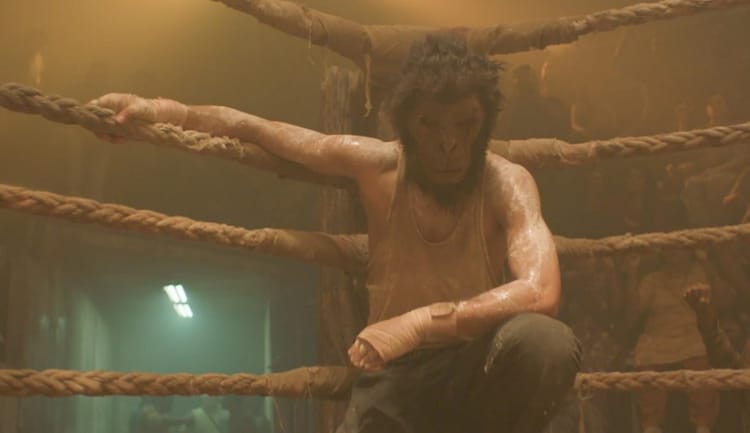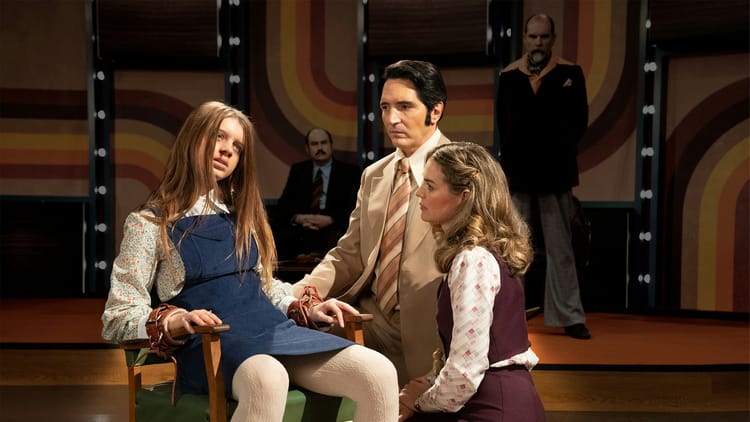Napoleon

In 2021, Ridley Scott released "The Last Duel," a harrowing examination of history, sex, and court politics. Every scene was filled with tension and clear direction, intent on reminding us of its innate subjectivity; every actor, no matter how small their role, brought a sense of purpose and pathos to their character; and the film possessed such clarity in its emotional indictment against both past and present systems of justice. It was one of my top viewing experiences that year for these reasons, its particularly brutal ending, and Jodie Comer's incredible performance as the maligned Marguerite de Carrouges, resilient even in the face of her horrendous treatment by the court and her own husband.
Earlier this year, when the trailer for Ridley Scott's newest historical epic, "Napoleon," dropped, I was excited for what looked like an extension of the ideas he'd explored in "The Last Duel." There were complaints about the trailer's historical inaccuracy, but Scott had already proven that accuracy is nigh impossible and veracity untrustworthy. Beyond that, the snippets of Vanessa Kirby as Josephine, Napoleon's wife, and Joaquin Phoenix as Bonaparte himself suggested Scott was applying a psycho-sexual lens to the much analyzed man, that perhaps there was more to the man's ambition than a desire to conquer his own height. It appeared as if Scott was keen on bringing subjectivity to the forefront again, foregoing objectivity, to examine the man's effect on history during his two and a half decade crusade across Europe. Instead, "Napoleon" could not be further from "The Last Duel" in all the worst ways.
From the film's start, with Marie Antoinette's execution to its very ending, there is little emotional investment to be had. No character, even Napoleon, manages to muster up an emotion more slight than pity. The best we get is Vanessa Kirby's Josephine, who like Marguerite de Carrouges, is forced to stand metaphorical trial before the French people, for her misgivings as the Emperor's wife. Kirby does well as the conniving and sympathetic Josephine, desperate to cling onto the power she has fought for. But still, what she has to work with overall is so meager compared to what was given to Comer; Carrouges had ample space to play within the film's structure while Josephine is restricted to bare-bones snippets. For unclear reasons, so much of the film is shot in jarringly short scenes, where we're barely given a chance to moor ourselves before we're racing off to the next battle, or decade, or political debate. In a different film, this could have a deliberately destabilizing effect. But in "Napoleon," it feels more like the filmmakers have no idea what they want to say, so much as they have to cover ground.
And frankly, so much of that ground is bland. Scott has said he does not care for historical accuracy. And that's perfectly fine. If I wanted accuracy, I would read a book or watch a documentary, not a narrative feature designed to make money. But if Scott does not care about accuracy, it's unclear what he cares about at all in "Napoleon." Accuracy is not sacrificed in the name of a better story, heightening tension, or creating parallels. It is sacrificed at an empty altar, to tell a story that has nothing to say.
Even Phoenix, one of our best living actors, cannot redeem this empty film. His Napoleon is often very funny, played with a childlike and tantrum-prone demeanor. Phoenix makes it plain that no matter how mighty a military leader Napoleon was in the field, he was a deeply insecure and pathetic man in his domestic life. He is controlled by his mother and routinely humiliated by his wife, unable to get her to fall in line like the other members of court so afraid of him. But beyond that, there is not much to say. Unlike the court, we do not fear the man, we do not empathize for him, we do not care about him. The same can be said of every other character in the film, including Rupert Everett's sneering Duke of Wellington or Ben Miles' calculating ambassador Calaincourt. These are terrific actors, playing tiny roles that are made to feel even tinier, scarcely given a minute to breathe. The Duke of Wellington's characterization is especially egregious because the character is forced to be a focal part of the film's last hour, but we are given nothing more to hold onto other than his title. The best we get, outside of Kirby, is Edouard Philipponnat as the young, baby-faced Tsar Alexander. He is one of the only actors given any room for psychological depth or room to play.
The only scenes where it feels like Scott cares are the battle scenes, many of which are incredible to behold. They are grand spectacles and feats in cinematography that almost distract us from the emptiness of the rest of the film. Because the story does so little to get us to care about Napoleon, the stakes of the battles are incredibly low, as we don't really care that much for his success or failure. And when the film's final text plays, recounting the number of those who died under Napoleon's command, it falls flat. To use an adage: the death of one man is a tragedy; the death of millions is a statistic. Scott cannot get us invested into the film's central character, so of course, we as viewers cannot understand the scale of death Napoleon caused, especially when the soldiers he treated as cannon fodder are treated as thoughtlessly in the film.
Even though "The Last Duel" ultimately stands with historical accuracy, its surprisingly unconventional structure proved that sometimes, the most direct and correct way to tell a story may not be its most interesting format. And "Napoleon" shows that being incorrect alone is not of interest either. What makes history feel interesting and, perhaps, alive, is that the figures within it feel real. The characters within history are human beings, capable of great folly or receiving great fortune, people that we can understand, care about, hate, feel something for. It isn't enough to tell us they were Dukes or Emperors or Mistresses. Beneath their titles, they have to be people. And somehow, in "Napoleon," Scott forgets that completely.




